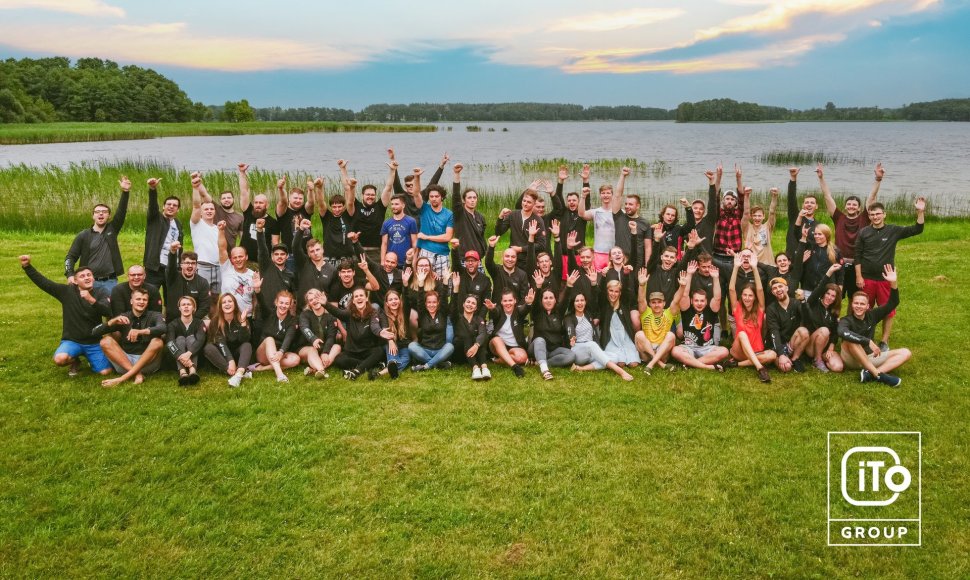Active leisure, interaction, and close bonding are the core principles of the company’s camp organised every year since 2015. Back then, the camp included 22 people, and 19 of them still work at the company. Usually, 80 to 90 per cent of the employees attend the event.
“We finally had the opportunity to meet up after the lockdown, and it is indeed fantastic that such a large part of our team joined. As a result, our colleagues not only relax, but also establish closer bonds, which helps to get to know one another better, work more effectively, and enjoy the process itself more,” says iToGroup head Paulius Lazauskas.
Upon arriving at the camp after the lockdown, the company’s head of personnel Eglė Dudonienė agreed that this year there were doubts about how colleagues would manage to establish a bond. “We work based on a hybrid model where most of our colleagues prefer working from home, so we were worried that we might have lost our connection. However, it appears that our efforts to not become distant during the lockdown paid off, and everyone has returned to where they parted a year and a half ago as if the remote period never existed,” shared the chief of personnel.
The summer camp aims to be enjoyable for employees but also useful in overcoming everyday work challenges such as effective problem solving and timely communication. E. Dudonienė compares it to enjoyable team training. “Colleagues participating for the first time might be surprised and wonder what to do here, but this is nothing to be feared about, everyone is included in the activities. The camp’s success is also clear because colleagues from Latvia, Estonia and even colleagues on maternity leave join the event,” said E. Dudonienė.
Arrange what you can yourself
The fact that the employees value these camps is also evident from an internal survey, with 95 per cent of respondents scoring the activities 10 out of 10, while the remaining 5 five per cent gave a score of nine. Nevertheless, the success only encourages the iToGroup team to try even harder and find new ways to improve the event next year. They consider everything from accommodation to music playlists while being on the road to the camp. “We are constantly on the lookout for means of improving the summer camp experience, and we organise everything by ourselves. Of course, we have used others’ services, but we realised that then it lacks ’heart’ and we are no longer ourselves. Furthermore, it leads to less engagement on the team’s part when participating,” explains E. Dudonienė.
Despite the negative predictions, it is becoming clear today that live meetings are essential for working teams, increasing staff efficiency.
“Constant online interaction might seem to lead to tensions and increased stress - it might be hard to read someone’s emotions, and sometimes you might have various interpretations. For example, your colleague might look angry or discontent when they aren’t. However, when you meet live, this is dispelled, and it becomes easier to remember how that colleague communicates. This makes it easier to interact in everyday tasks, leads to more mutual understanding and simplicity,” notes E. Dudonienė.












